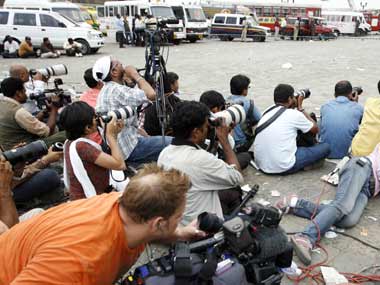After much debate over curbing ‘paid news’ in the Indian media, a new Parliamentary committee in its report on how to end the menace may has made some strong suggestions that expose the industry to a potential minefield.
The Parliamentary Standing Committee in its extremely detailed report has laid the blame for the current situation regarding paid news in the Indian media squarely on the shoulders of the Ministry of Information and Broadcasting, which it says has failed to take any action to curb the menace.
“The Committee expects a concerted, comprehensive and swift action from the Ministry on this crucial matter without any further delay, in any case before the onset of the next General Elections to prevent resurfacing of the hydra head of ‘Paid News’,” the committee noted.
In its observations on the functioning of the ministry, the committee said it would await specific action taken by the government within six months.
The main grouse that the committee has is the lack of a regulatory body, that too a statutory one that can look into violations of guidelines by print and electronic media outlets in order to take ‘strong action’. And it wants one soon.
[caption id=“attachment_883843” align=“alignleft” width=“380”]  Could regulation curb the freedom of the press?Reuters[/caption]
If a new statutory body is being created the committee has recommended that the existing Press Council of India be wound up, but if the Ministry is averse to creating a new body, the committee has sought that the PCI be given more powers to handle violations of paid news guidelines and a new body be created to monitor electronic news outlets.
Impact Shorts
More ShortsHowever, there’s a catch. The committee wants media outlet owners and interested parties not to be a part of the proposed regulatory body in any way, a provision which opens it up to potential misuse.
Terming the existence of self-regulatory bodies as mere ’eyewash’, the parliamentary committee has said that despite the provisions to tackle the issue,“the existing self regulatory bodies have abysmally failed to invoke the provisions and take appropriate deterrent action.”
For a model for how to regulate the media, the committee also has said the ministry needs to look no further than the Leveson commission’s report, which wasn't viewed with great happiness by the media in the UK either.
The report also recommends that election laws should be strengthened further to curb paid news articles and has sought that the Election Commission be allowed to take more action against the candidates and media houses found guilty.
And regarding the cross holding of media houses the committee has recommended that I&B ministry and Telecom Regulatory Authority of India consider this as a high priority and take action to curb monopolies from being formed. Unfortunately as a _Firstpost_ article had pointed out merely painting all media houses with one brush doesn’t really solve the problem.
The committee has made some rather interesting observations regarding the cause for the existence of paid news as well in its report. The committee has recommended the clear definition of what constitutes a ‘paid news’ article, asked for organisations to remedy the declining independence of journalists and sought a curb on private treaties’ which result in media and private companies cross-holding stakes.
As for the government arm-twisting the media through advertisements, the committee has called for greater transparency with the ministry putting up the data on its own website. However, it has also called for greater transparency from media houses including making them disclose income from advertisements. It also wants media houses to be clear in disclosing which news stories are sponsored and wants even the government to educate people about paid news articles.
It won’t be surprising if a lot of the recommendations of the Parliamentary Standing Committee don’t go beyond getting lip service from the industry and the ministry. There are recommendations like giving more teeth to the Election Commission and other organisational reforms within the media could make a difference, but the creation of a powerful statutory body to regulate the media is one that doesn’t augur well for the fourth estate of democracy .
You can read the report below:
Parliamentary Standing Committee report on paid news by Firstpost


)

)
)
)
)
)
)
)
)



